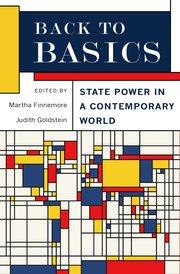Governance under Limited Sovereignty
Thomas Risse – 2013
The social science debate on governance implicitly or explicitly remains wedded to an ideal type of modern statehood—with full domestic sovereignty and the capacity to make, implement, and enforce decisions. From a global as well as historical perspective, however, the Western modern nation-state constitutes the exception rather than the rule. Outside the developed OECD world, we find areas of limited statehood that lack domestic sovereignty. Under such conditions, governance requires the inclusion of non-state actors in the provision of collective goods and the regulation of social and political issues. Our conceptual apparatus is ill-equipped to deal with the governance problématique in areas of limited statehood. However, limited statehood does not mean the absence of governance or the provision of collective goods, as most of the literature on fragile and failed states assumes. Rule making, collective goods and services are provided by various combinations of state and non-state actors using predominantly non-hierarchical modes of steering. Emphasizing governance rather than statehood allows us to abandon the state-centered view of politics and to ask who is providing which rule structures and which public services under conditions of limited statehood. The governance perspective enables us to look for functional equivalents to the ability of consolidated states to cast a “shadow of hierarchy” as a context for effective governance by and with non-state actors. The chapter first describes what “limited statehood” means. Second, I discuss the modes of governance to be found in areas of limited statehood. Third, I discuss governance problems arising in areas of limited statehood and then introduce functional equivalents to consolidated statehood that insure that rules are being enforced and governance contributions by non-state actors are effective.

